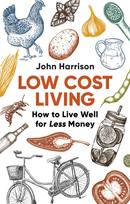Do you find yourself spending money you didn’t intend to? If that kind of habit ends up sapping your money every month and you aren’t sure what to do about it, you might need to identify your spending triggers. Have you heard of this term before? Let’s dive into what these are so you can do something about them.
 Spending Triggers Explained
Spending Triggers Explained
If you have a spending trigger, that means that there is an emotional feeling or a situation you can experience that reduces your ability to say no to purchases. You may spend more money than you planned to because of this trigger.
What kind of spending triggers are there?
One of the biggest ones people deal with today is called fear of missing out (or FOMO, for short). This means that they are trying to keep up with other people and do what they are doing so that they can experience the same things. As their friends talk about the kinds of things they are experiencing, some people may spend more money to be part of that conversation.
For others, a spending trigger may be sadness or loneliness. These kinds of emotions can cause them to go on an Internet spending spree or make them feel like they need to go to the mall and buy something. Then, they may go far beyond their budget with their spending and regret their purchases later on.
Another spending trigger might occur when you have your children with you. If your kids constantly ask for the items they see around them, that may tear down your defences against unnecessary spending and cause you to spend more than you planned to.
The final spending trigger we want to mention is hobby spending. When you find yourself in an environment that caters to your particular hobby, your ability to resist making purchases may be incredibly weak.
Know Your Triggers
Now that you have an idea of what spending triggers are, you can start to identify your own. Think about times over the last few months in which you spent more money than you intended to. Try to locate the spending trigger that caused you to make those purchases. Maybe you didn’t feel very well or you were put into an environment that encouraged spending. Perhaps you were around certain friends who prompted your spending. Maybe you were out of sight of your spouse or another person who helps to keep you accountable in your spending.
There are a wide range of spending triggers, so you will have to narrow yours down on your own. We are just sharing a few ideas about what kind of triggers you may have. Some people have multiple spending triggers, and it is important that you know what those are and then figure out a plan for how to deal with them.
Make a Budget
There are many frugal living rules that can be applied to your life to help with spending triggers. Many of these are the same rules experts would provide for anyone who is struggling with their finances and trying to live more economically. One of the best ways you can deal with your spending triggers is to simply make out a budget.
The physical act of drawing up a budget gives you a strong reminder that can stick with you whenever you are in a position to spend some money. You may be tempted to buy something and then remember how much money you allotted yourself in your budget for entertainment spending. It can help to keep your budget in your pocket, purse, or wallet, or to place it in a visible location where you will see it throughout the day.
Your budget can change every so often, and that’s fine. One month you may have very few cleaning costs, and then another month you may need to pay for professional cleaning in your Chicago home. One month you might have to pay for car insurance, and then not have to pay for it for months at a time. Make up new budgets as necessary to stay on top of these changing expenses.
Talk Yourself Through the Spending Trigger
Once you have taken that first step of identifying your triggers, you then need to learn how to exercise self-control. One of the best ways to do that is to talk out loud to yourself when you’re in an environment that triggers spending. Remind yourself that you are experiencing a trigger and that you need to think logically and clearly. Talk to yourself about keeping your spending under control and not letting the trigger control you. Remind yourself that you are in control, and you need to stay in control. These kinds of talks can help to ground you and keep you from doing something you might regret later
Actively Avoid Your Trigger
Your spending triggers will be your weak points in your life, so you want to try to stay away from them as much as possible. The people, environments, and emotions that cause you to spend should be consciously avoided. You may not be able to avoid these things entirely, but you can at least reduce how often you put yourself in a place where the trigger may activate. Remind yourself regularly what your triggers are so that you have a plan to avoid them.
Final Thoughts
Most people have triggers of some kind, and the ways you identify and deal with them will be very similar across the board. You don’t have to let your spending triggers control you and make it difficult for you to live frugally. Simply reading articles like this will help you be more aware of what is happening with your spending habits and what steps you need to take to get it under control.
We hope the ideas in this article will help you to spend less and live with fewer regrets.

